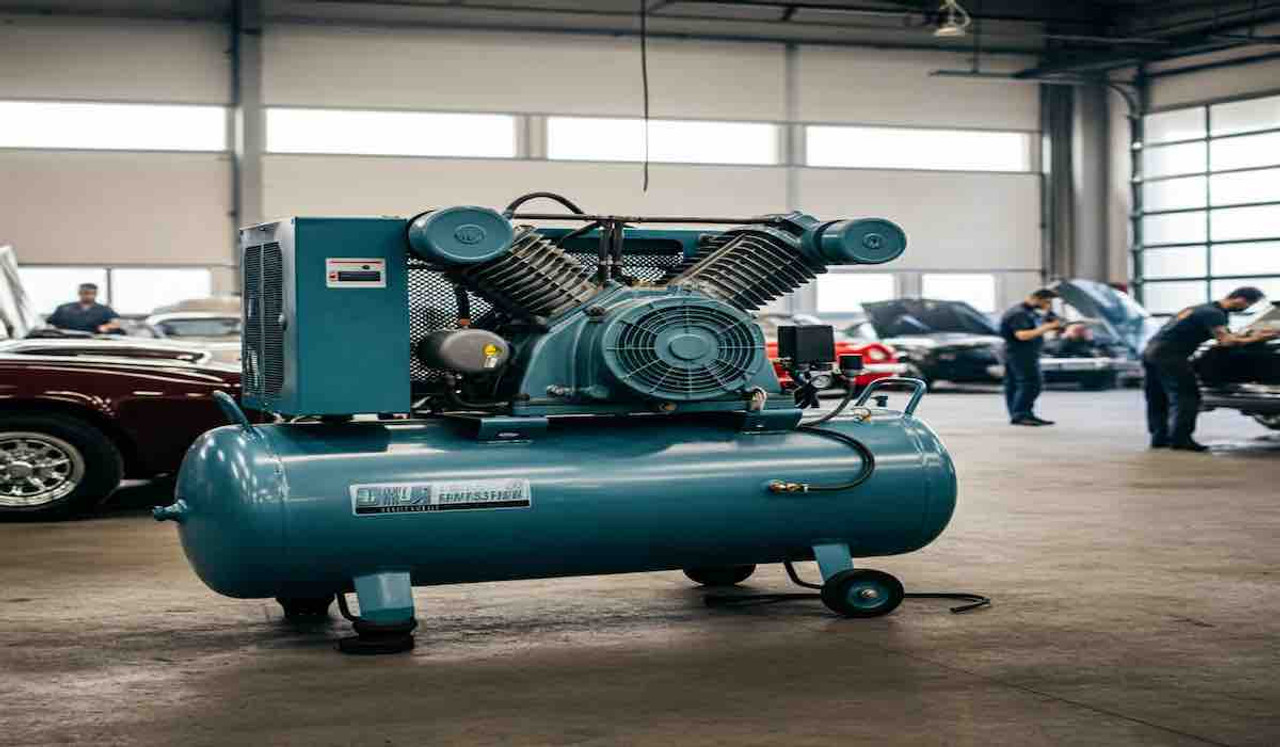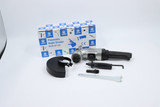Seasonal Maintenance Tips for Air Compressors in New Jersey's Variable Climate
Introduction
New Jersey's variable climate, with its hot summers and cold winters, can take a toll on your air compressor if not properly maintained. Seasonal changes in temperature and humidity can affect the efficiency and longevity of this essential tool, making regular maintenance critical. By following specific upkeep strategies tailored to New Jersey’s climate, you can ensure your air compressor continues to run smoothly year-round. From preparing your equipment for the hot, humid summers to safeguarding it during the cold winter months, these seasonal maintenance tips will help you avoid costly breakdowns and keep your air compressor performing at its best.
In this comprehensive guide, we'll explore essential seasonal maintenance tips to ensure your air compressor operates efficiently throughout New Jersey's variable climate.
1. Spring Maintenance: Preparing for Increased Workload
As temperatures rise and construction projects pick up, spring is the perfect time to prepare your air compressor for increased usage:
Thorough Cleaning:
- Remove dust and debris accumulated during winter storage
- Clean or replace air filters to ensure proper airflow
- Inspect and clean cooling fins to prevent overheating
Lubrication Check:
- Check oil levels and quality
- Replace oil if it appears cloudy or contaminated
- Lubricate moving parts according to manufacturer specifications
Belt Inspection:
- Check belt tension and alignment
- Replace worn or cracked belts
- Ensure proper pulley alignment for optimal performance
Condensate Management:
- Clean or replace condensate filters
- Check and clean drain valves
- Consider installing a water separator for humid conditions
2. Summer Maintenance: Beating the Heat
New Jersey's hot and humid summers can put extra strain on air compressors. Follow these tips to keep your equipment cool and efficient:
Ventilation:
- Ensure proper airflow around the compressor
- Clean intake vents regularly
- Consider installing additional fans for improved cooling
Coolant Check:
- Inspect coolant levels and quality
- Top up or replace coolant as needed
- Check for leaks in the cooling system
Pressure Relief:
- Test pressure relief valves for proper operation
- Replace faulty valves immediately to prevent overheating
Moisture Control:
- Empty moisture traps more frequently
- Consider upgrading to an automatic drain system
- Use desiccant air dryers to combat high humidity
3. Fall Maintenance: Preparing for Colder Months
As temperatures begin to drop, prepare your air compressor for the upcoming winter:
Insulation:
- Inspect and repair insulation on air lines
- Consider adding heat tape to prevent freezing
- Ensure the compressor room is properly insulated
Antifreeze:
- Check antifreeze levels in water-cooled systems
- Use appropriate antifreeze mixtures for expected temperatures
Air Intake:
- Relocate air intakes to draw in warmer air if possible
- Install intake filters designed for colder temperatures
Condensate Management:
- Insulate or heat trace condensate lines to prevent freezing
- Check drain valves for proper operation in colder conditions
4. Winter Maintenance: Combating the Cold
New Jersey's harsh winters require extra attention to keep your air compressor running smoothly:
Warm-Up Procedures:
- Implement proper warm-up routines before full operation
- Allow sufficient time for oil to circulate and warm up
Frost Prevention:
- Use synthetic oils designed for cold weather operation
- Install crankcase heaters for extremely cold conditions
Moisture Control:
- Empty moisture traps more frequently to prevent freezing
- Use heated air dryers to prevent condensation in air lines
Regular Inspections:
- Check for ice buildup on components and remove as needed
- Inspect seals and gaskets for cold weather damage
5. Year-Round Maintenance Best Practices
Regardless of the season, these maintenance practices should be performed regularly:
Daily Checks:
- Monitor oil levels and pressure readings
- Listen for unusual noises or vibrations
- Check for air leaks in the system
Weekly Tasks:
- Clean or replace air intake filters
- Drain moisture traps and receivers
- Inspect belts for wear and proper tension
Monthly Maintenance:
- Check all electrical connections and components
- Tighten loose bolts and fittings
- Inspect safety valves and gauges for proper operation
Annual Service:
- Perform a comprehensive inspection of all components
- Replace worn parts and fluids as needed
- Calibrate pressure switches and gauges
Seasonal Maintenance Checklist
| Season | Key Maintenance Tasks |
| Spring | - Clean thoroughly - Check lubrication - Inspect belts- Manage condensate |
| Summer | - Ensure proper ventilation - Check coolant- Test pressure relief valves- Control moisture |
| Fall | - Insulate air lines- Check antifreeze- Prepare air intake- Winterize condensate system |
| Winter | - Implement warm-up procedures- Use cold-weather lubricants- Prevent frost buildup- Increase moisture control |
Related Articles:
- Understanding the Right Size of Air Compressor for Your Pneumatic Air Tools in 2024
- How to Repair Common Air Compressor Issues: A DIY Guide for Troubleshooting and Fixing
- Optimizing Air Compressor Longevity: Essential Maintenance Tips for Peak Performance
- Energy Efficiency in Air Compressors: What to Look For
- The Best Quiet Air Compressors for Peaceful Suburban Garages in Maryland
Frequently asked Questions
1: How often should I change the oil in my air compressor?
In New Jersey's variable climate, it's recommended to change the oil every 3-6 months or 500-1000 operating hours, whichever comes first. However, always refer to your manufacturer's guidelines for specific recommendations.
2: What type of oil should I use in my air compressor during winter?
For New Jersey winters, use a synthetic oil with a lower viscosity rating, such as SAE 5W-30 or 10W-30. These oils maintain proper lubrication in cold temperatures and allow for easier start-ups.
3: How can I prevent my air compressor from freezing in winter?
To prevent freezing, insulate air lines, use antifreeze in water-cooled systems, install crankcase heaters, and ensure proper drainage of condensate. Also, store your compressor in a heated area when possible.
4: What should I do if my air compressor overheats in summer?
If your compressor overheats, immediately shut it off and allow it to cool. Ensure proper ventilation, clean cooling fins, check coolant levels, and consider adding external fans. If the problem persists, consult a professional technician.
5: How can I reduce energy costs associated with running my air compressor?
To reduce energy costs, perform regular maintenance, fix air leaks promptly, use appropriately sized compressors for your needs, and consider installing variable speed drives. Also, optimize your compressed air system layout and use energy-efficient air tools.
Related Article
New Jersey's Guide to Choosing Compact and Efficient Portable Air Compressors
The Best Air Compressors for Powering Tools in New Jersey's Cold Weather
Conclusion:
Proper seasonal maintenance of your air compressor is essential for ensuring its longevity and efficiency in New Jersey's variable climate. By following these tips and adhering to a regular maintenance schedule, you can keep your air compressor running smoothly year-round, reducing downtime and costly repairs.
Need high-quality air compressors or maintenance supplies for your New Jersey business? Visit Tend Industrial Supplies at tendsupplies.com for a wide selection of top-brand air compressors, parts, and accessories. Our knowledgeable staff can help you find the perfect solutions for your specific needs and climate challenges. Don't let the weather impact your productivity – invest in reliable equipment and proper maintenance today!









